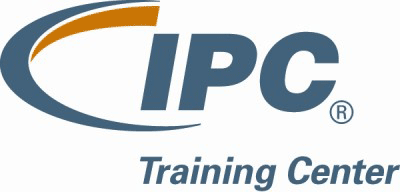IPC-A-610 for Certified IPC Specialist (CIS) 15-JAN-2024
Targeting Excellence in Electronics Assembly
The IPC-A-610 “Acceptability of Electronic Assemblies” is the most widely used standard published by the IPC with an international reputation as the source for end product acceptance criteria for consumer and high reliability electronic assemblies. This is an industry developed and approved program that includes training, certification and instructional materials based on the IPC-A-610 and will be conducted by the SMCBA IPC Training Center.
Certification will demonstrate your commitment to customer requirements and greatly assists any company dedicated to ISO-9000 or other quality assurance initiatives. The IPC training and certification has immediate recognition, legitimacy and value with thousands worldwide having been trained and certified as IPC-A-610 Certified IPC Trainers.
A comprehensive and technical program, the IPC-A-610 Training and Certification provides trainers with high quality materials and detailed instructional plans for training IPC Application Specialists from assembly operators, quality, inspection, buyers, sales personnel and management.
How the program works: The program has two tiers of instruction. Certified IPC Trainer (CIT) candidates receive intensive training on the IPC-A-610 from an IPC Training Centre. Candidates are certified after completing the course and passing the certification examinations. Certified IPC Trainers are provided with instructional materials for training Certified IPC Application Specialists (CIS) in a modular program. Certification is for two years and CITs must then recertify through an IPC Training Center.
IPC-A-610 Certified IPC Trainer Course Topics:
- Establishing and maintaining integrity of the certification program
- Purpose and application of IPC-A-610
- Hardware installation
- Soldering criteria, including lead free connections
- Soldered requirements for connecting to terminals
- Soldered connection requirements for plated-through holes
- Surface mounting criteria for chip components, leadless and leaded chip carriers
- Swaged hardware, and heatsink requirements of mechanical assemblies
- Component mounting criteria for DIPS, socket pins, and card edge connectors
- Jumper wire assembly requirements
- Solder fillet dimensional criteria for all major SMT component groups
- Soldering anomalies such as tombstoning, dewetting, voiding, etc
- Criteria for component damage, laminate conditions, cleaning and coating
- Steps to effectively using the lesson plan and materials, tips on inspection and a review of important Certified IPC Trainer skills
Who Should Become an IPC-A-610 Certified IPC Trainer?
Anyone responsible for the quality and reliability of electronic assemblies should consider becoming an instructor. Trainers and quality supervisors experienced in electronic assembly are excellent candidates for A-610 training as are engineering and manufacturing supervisors with assembly responsibilities.
Certified IPC-A-610 Trainers receive materials for conducting modular training for Certified IPC Application Specialist (CIS). The modular approach lets users control cost by tailoring training to the specific needs of their workforce. The materials provided in the CIT kit are:
- Full color teaching visuals illustrating every aspect of the IPC-A-610 document and training information, and all reports and forms required for conducting Application Specialist (CIS) training
- Soft copy of the Instructor Guide, providing complete instructions for conducting the Application Specialist (CIS) training and testing (see note 2 below)
- IPC-A-610 Acceptability of Electronic Assemblies and IPC-T-50 Terms and Definitions for Interconnecting and Packaging Electronic Circuits - both in softcopy
- Open and closed book exams are now conducted online on the IPC Certification Portal
Please Note:
- The IPC no longer produces hard copies of exams or certificates - all online
- Additional CIS training and certification materials including hard copies of the instructor guide and standards can be purchased from the IPC by a IPC-A-610 Certified IPC Trainers
Trainers may teach the course at any location and set a training fee if applicable.
The certification term for an IPC-A-610 Certified IPC Trainer (CIT) is two years.
CIT re-certification is available only through an IPC-A-610 Authorised Training Centre.
Fees:
The fee for the IPC-A-610 CIT course includes all materials for the course, refreshments each day and (after successful completion of the course) the IPC-A-610 CIT Kit.
CIT Course Fee: Contact the SMCBA for Pricing.
SMCBA Members receive a discount.
Certified IPC Application Specialist (CIS) Course Fee: Contact the SMCBA for Pricing.
SMCBA Members receive a discount.
The CIS fee does NOT include a copy of the A-610 standard - it is assumed that students will have access to the standard at their place of work. The standard can be purchased separately - please contact
Event Information
| Event Date | 15 Jan 2024 8:45 am |
| Event End Date | 17 Jan 2024 4:30 am |
| Cut Off Date | 08 Jan 2024 |
| Capacity | 10 |
| Individual Price | $1,150.00 |
| Location | Training Centre Adelaide |
| Categories | IPC-A-610 |
IPC-A-610 Training Course Information
IPC-A-610, Acceptability of Electronic Assemblies, is the most widely used specification published by IPC with an international reputation as THE source for end-product acceptance criteria in both consumer and high-reliability electronic assemblies. A comprehensive and technical program, this certification will improve candidates’ accuracy of ‘discrimination’ between an ‘acceptable’ and ‘non-conforming’ electronic assembly per the IPC-A-610 standard, leading to continuous improvement in product quality and reliability.


